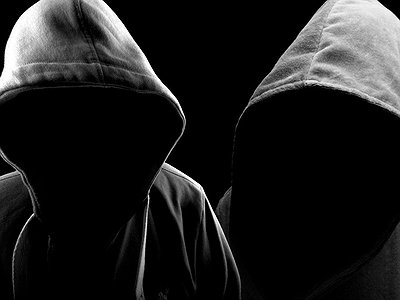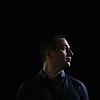Could you take us through a day in your life, from a possible morning routine through to your work? Do you have a fixed schedule? How do music and other aspects of your life feed back into each other - do you separate them or instead try to make them blend seamlessly?
Well my dog wakes me up to go walk. Then I have about 5 coffees. Then make breakfast and play some games. Then a few more coffees. Then more dog and more food. All this gets interrupted though when I have an idea for music. Sometimes there are water footsteps leading from the shower. I could never do the ‘go to the studio for 8 hours to work’ thing. I think it would start to make me bored or even resent it. If I’m trying to finish a song and it’s just not working, I leave it and come back an hour later and it’s all better.
Could you describe your creative process on the basis of a piece or album that's particularly dear to you, please? Where did the ideas come from, how were they transformed in your mind, what did you start with and how do you refine these beginnings into the finished work of art?
Lots of my tracks come about from me questioning my habits. So why is the kick always the same sound and same volume or what happens if two opposite LFOs control 2 similar sounding synths. Stuff like that. My earlier song "Bay of Figs" was like that. It’s a basic study of LFOs on 2 sawtooths. The bassline is me wondering what a delay on a single note bass would be like compared to 16th notes. Usually when I’m traveling I have those questions come up and write them down for me to go in the studio and play around with for fun. Sometimes they turn into songs and sometimes they just help me learn.
There are many descriptions of the ideal state of mind for being creative. What is it like for you? What supports this ideal state of mind and what are distractions? Are there strategies to enter into this state more easily?
For me it’s keeping it fun. It’s pretty much the same fun I get when I play games. If you start gaming for work or taking it too serious, the fun escapes. Music to me is like that. I do it when I want and only make what I want. Listening to other styles of music is inspiring and so is playing shows around with other people. I never expect to make a hit so there are never any pressures. I have a system where I just make loads of songs and a few are bound to be good - and in the meantime I’ve learned about creating and arranging.
How is playing live and writing music in the studio connected? What do you achieve and draw from each experience personally? How do you see the relationship between improvisation and composition in this regard?
When I’m traveling around for a while I can’t wait to go back to the studio and try out some ideas and make new songs. When I’m in the studio and I make something special I can’t wait to try it out on the road. Sometimes these special songs are total crap but there was no way to know without me trying it out. It’s fun like that and it’s a great balance that keeps it fresh. Too much of one side and I start losing my mind. The hard part for me is that I sometimes want to just make songs that I can play out when I know that I should be making weird experiments for the art of it. It’s tough when you play live all the time and the only arsenal you have is your own songs. The last thing you want to do is play the same old stuff and get bored.
How do you see the relationship between the 'sound' aspects of music and the 'composition' aspects? How do you work with sound and timbre to meet certain production ideas and in which way can certain sounds already take on compositional qualities?
Growing up I really got into techno by going to warehouse parties in Detroit. Before that I was only heavily into synth pop and new wave. It was really cool to hear how the focus of a song could be a sound or a blip. There was still a melody but it was so minimal and sparse that it made you focus on that sound so much more. I think I really appreciate that and try to keep things very simple so you can appreciate the sounds going on. If you can get a short simple melody across it makes the song way more funky. A long chord or sound can really drag a song down. Sometimes if I notice my song is too dark or too ambient sounding, I’ll look for the longer sounds and add a tremolo or shorten the decay. Then it becomes punchy again.
My whole career has been playing with the sounds that make me happiest and once that takes a backstage to composition, the point is lost. Composition is there to cleverly demonstrate the main idea of the song in a way that’s too boring.
Our sense of hearing shares intriguing connections to other senses. From your experience, what are some of the most inspiring overlaps between different senses - and what do they tell us about the way our senses work? What happens to sound at its outermost borders?
I’ve always been jealous of people with synesthesia. I had a friend who would describe techno as a bunch of grey circles. For me it’s not so obvious but I do get a shiver up my spine when I play a nice chord with the chorus and reverb on the Juno-60 or the JX-10. It means there is a connection to the sound and a love for what’s being made. When I was growing up and playing the Commodore 64, I was being fed loads of modulating square and saw waves while having fun playing the games. That all leaked into my brain and I associate those sounds with fun. Same with certain techno sounds I heard while dancing or synth pop while exploring music. I’m happy playing with those sounds because they mean so much to me and I think that’s why I prefer the stuff I know already to playing around on a modular synth.
Art can be a purpose in its own right, but it can also directly feed back into everyday life, take on a social and political role and lead to more engagement. Can you describe your approach to art and being an artist?
I always make music for myself. The fact that other people want to listen to it is amazing but it doesn't change my motivations.
It is remarkable, in a way, that we have arrived in the 21st century with the basic concept of music still intact. Do you have a vision of music, an idea of what music could be beyond its current form?
Music for me is partly nostalgic and partly futuristic. I like listening to a song that instantly reminds me of how I felt when I first heard it. I can listen to an album and be brought back to where I was when I first bought and heard it. As a music maker I’m surrounded by possibilities and always looking forward to a better version of me. I think today’s music listening methods are sending music away from nostalgia and becoming more temporary. That being said it’s progressing in a way that’s incredibly interesting and new types of music are emerging more frequently. For the first time it’s very hard to stick songs into specific categories as genres are becoming obsolete. I like that.



